GENERAL SITUATION IN MEXICO

Weekly Review I March 5, 2025






Weekly Review I March 5, 2025







US - MEXICO
Background:
• U.S. President Donald Trump reaffirmed that 25% tariffs on imports from Mexico and Canada will take effect on Tuesday, intensifying fears of a trade war.
• His remarks sent U.S. stocks tumbling, while the Mexican peso and Canadian dollar depreciated.
• Trump argued that automakers should move production to the U.S. to avoid tariffs, rejecting the idea of further negotiations.
• The decision is tied to fentanyl trafficking concerns, with Trump stating there is “no room left” for a deal.
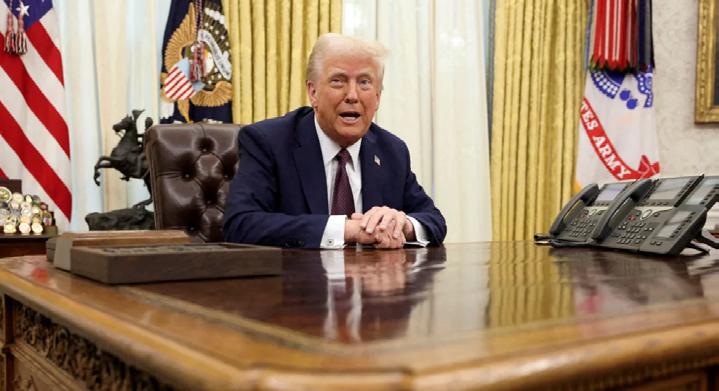
• Mexico previously avoided tariffs by deploying troops to its northern border and increasing efforts against fentanyl smuggling.
• President Claudia Sheinbaum’s government will issue an official response after her morning press conference on Tuesday, stating: “We have a plan B, C, and D.”
• Canada, already facing 14.5% tariffs on softwood lumber, is preparing countermeasures, though Foreign Minister Mélanie Joly has yet to provide specifics.
• Ontario Premier Doug Ford warned of severe consequences, predicting that Michigan auto plants could shut down within a week. He also threatened to halt nickel exports and electricity transmission to the U.S.

• The tariffs will affect over $900 billion in U.S. imports, dealing a serious blow to integrated supply chains, particularly in the automotive sector.
• Automakers hit hard:
o General Motors (GM) fell 4%, as much of its truck production is based in Mexico.
— Ford dropped 1.7%, as suppliers warned of rising production costs.
• Grocery and fuel costs are expected to rise, with Democrats criticizing the decision’s impact on American families.
• U.S. stocks fell sharply in response to Trump’s announcement:
— Dow Jones: -649.67 points (-1.48%)
— S&P 500: -104.78 points (-1.76%)
— Nasdaq Composite: -497.09 points (-2.64%)
• The Mexican peso and Canadian dollar weakened, reflecting investor fears over the tariffs’ consequences.
• Trump also confirmed a tariff increase on all Chinese imports from 10% to 20%, citing Beijing’s failure to curb fentanyl exports to the U.S.
• China vowed retaliation, describing the tariffs as “unreasonable and groundless” and warning of countermeasures targeting U.S. agricultural and food products.
• The Global Times, a state-backed Chinese newspaper, suggested China would focus on restricting U.S. soybean and pork imports.
• Democrats condemned the move, with Representative Suzan DelBene warning that tariffs will increase the cost of living for American families.
• White House trade adviser Peter Navarro downplayed concerns, stating that the inflationary impact would be “second-order small.”
• Trump expanded his tariff war strategy, launching a national security investigation into lumber and wood imports, which could lead to even higher tariffs on Canada.
• His administration revived a probe into digital service taxes, targeting Canada, France, and other countriesimposing levies on U.S. tech firms.
• Trump’s “reciprocal tariffs” policy aims to match foreign trade barriers, potentially impacting European Union nations that impose value-added taxes (VATs) on imports.
• Experts warn that his aggressive tariff strategy could sustain inflationary pressures and push the global economy closer to recession.
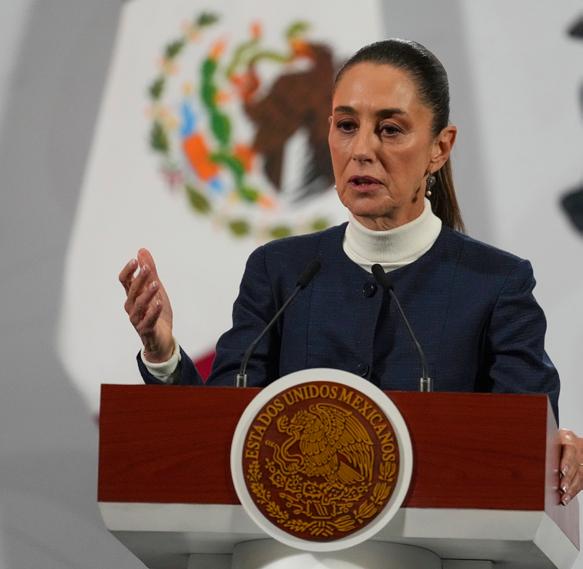
• The Mexican government has taken swift and strategic action to counteract the impact of the tariffs. President Claudia Sheinbaum deployed top officials to Washington in a last-minute attempt to prevent the tariffs, but negotiations failed.
• Despite this setback, she has pledged to continue seeking a diplomatic resolution while preparing countermeasures.
• Mexico has intensified security cooperation by extraditing 29 cartel leaders and is accelerating trade talks with Europe and Asia to reduce reliance on the U.S.
• In direct response to the tariffs, Sheinbaum has announced that she will likely have talks with President Trump on Thursday. If the Tariffs remain, Mexico will announce a “Plan B¨, implementing retaliatory measures starting Sunday, which will include both tariff and non-tariff actions.
SOURCE: EL FINANCIERO
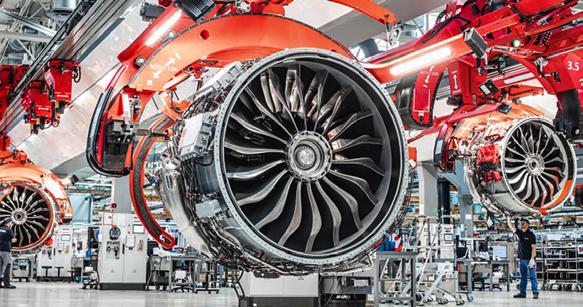
The Government of the State of Mexico is working to establish an aerocluster, similar to those in other parts of the country, to attract aeronautical and space industries to the region. Laura González Hernández, head of SEDECO, stated that they are in discussions with industry stakeholders to offer land, services, and incentives for companies to settle in the Centro-AIFA corridor. The initiative aligns with federal government plans to draw global aerospace investments to the State of Mexico, Hidalgo, and Mexico City. With the presence of AIFA, Toluca International Airport (AIT), and proximity to AICM, the region offers strategic advantages for the sector. Talks are also underway to expand AIT as a cargo and private aviation hub, while events like the Aero Expo help position the state as an attractive investment destination.
SOURCE: MEXICO NOW
Honda has decided to produce its next-generation Civic hybrid in Indiana instead of Mexico to avoid potential U.S. tariffs on imports from Mexico and Canada, according to sources familiar with the matter. Originally planned for Guanajuato with production set to begin in November 2027, the shift to Indiana is scheduled for May 2028, with an expected annual output of 210,000 units. Honda may still import from non-tariffed countries if demand exceeds Indiana’s capacity. This move highlights the impact of proposed 25% tariffs under Donald Trump’s trade policies, which have forced automakers to reassess production strategies. Mexico has traditionally been a cost-effective hub for auto manufacturing, with Honda exporting 80% of its Mexican production to the U.S. The company, which sold 1.4 million vehicles in the U.S. last year—including over 240,000 Civics—continues to evaluate production locations based on market conditions and potential trade barriers.
SOURCE MEXICO NOW



On Thursday, February 27, during its Annual General Assembly, the business leadership of Tijuana was renewed, with Lyle Fritch replacing former president Carlos Jaramillo Silva as head of the CCE Tijuana. In his first speech, Fritch emphasized strengthening coordination between the private sector and government to drive regional economic development through strategic objectives. His plan includes reinforcing ties with the state government to promote investment-friendly policies, unifying business organizations under a common agenda, and boosting economic growth by enhancing competitiveness and attracting investment. He also aims to address key issues like potential U.S. tariffs that impact the local business climate. Recognizing the weight of his responsibility, Fritch highlighted the need for synergy among business groups to ensure sustainable regional development. A seasoned entrepreneur, he previously led the Tijuana Development Council (CDT) and currently manages companies in electronic security, hospitality, gastronomy, and entertainment. Outgoing president Carlos Jaramillo Silva expressed gratitude for the support during his two-year term and voiced confidence in Fritch’s ability to strengthen the sector.
SOURCE: INDUSTRIAL NEWS BC
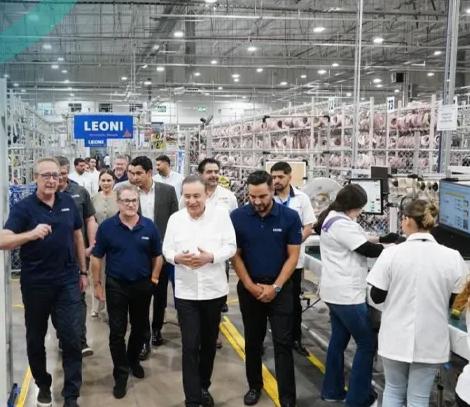

Leoni, a manufacturer of wiring systems for the automotive and commercial vehicle industries, inaugurated its Training and Development Center (Cecade) at its Hermosillo plant to enhance regional competitiveness and create better-paying jobs. In collaboration with the Sonora State Institute for Job Training (Icatson), the center will certify workers in various industrial specialties, improving their employment opportunities.
SOURCE: CLUSTER INDUSTRIAL


René Espinosa Terrazas, president of Index Chihuahua, called for collaboration and dialogue between the industrial sector and government to ensure Mexico’s stability and competitiveness, following the U.S. announcement of tariffs on imports from Mexico, Canada, and China. He emphasized the need for accurate information to prevent uncertainty and urged confidence in ongoing negotiations between Mexico and the U.S. to determine affected sectors and develop strategic initiatives. Espinosa highlighted Index Chihuahua’s continuous work with national and international stakeholders to maintain a favorable industrial environment, stressing the importance of the U.S.-Mexico trade relationship. He also reaffirmed the resilience of Chihuahua’s export manufacturing sector and its ability to adapt to challenges while advocating for policies that protect jobs and encourage investment.
SOURCE: EL HERALDO DE CHIHUAHUA

Index Nuevo León is assessing the impact of Trump’s 25% tariffs on its affiliated companies, with preliminary data from 45 firms showing an average monthly loss of $10.91 million per company. While the effects on jobs, production, and exports are still uncertain, companies are exploring strategies to mitigate the impact. Nuevo León, responsible for 11% of Mexico’s exports, is particularly vulnerable to these trade measures. Zelina Fernández, Index Nuevo León’s director, warned that retaliatory tariffs from Mexico could further strain production costs, estimating an additional $5.44 million in losses per company. She emphasized the need for cautious negotiations rather than escalating trade tensions, as the federal government evaluates potential responses.
SOURCE: EL ECONOMISTA
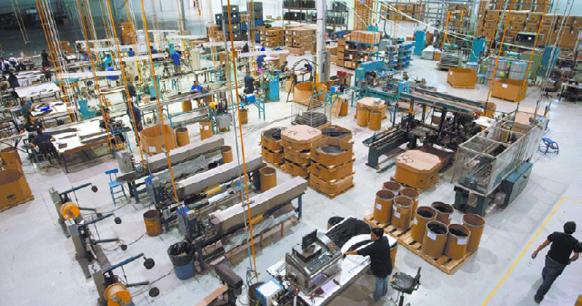


The Salamanca Combined Cycle Power Plant (CCC) in Guanajuato was inaugurated to meet the growing energy demand in the Bajío region. Developed by the Federal Electricity Commission (CFE), it began operations on February 14 and has a capacity of 927 megawatts (MW), benefiting 5 million people. Using combined gas and steam cycle technology, the plant will cut CO2 emissions by 3.5 million tons, equivalent to removing 750,000 cars from circulation, and will save over 7 million cubic meters of water annually by optimizing resources from the old thermoelectric plant. CFE Director General Emilia Esther Calleja Alor emphasized that this project marks a step toward regaining control of Mexico’s national electrical system. By 2030, Mexico plans to add 21,846 MW with a $29 billion investment, including the Salamanca II project, which will contribute 1,500 MW. The inauguration was attended by President Claudia Sheinbaum Pardo, top federal and state officials, and Salamanca’s municipal president.
SOURCE: MEXICO NOW
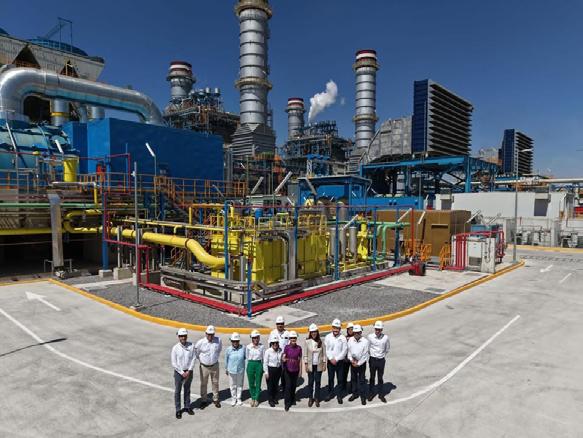

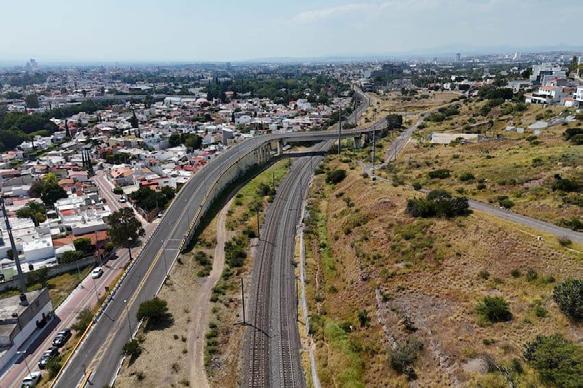

Mexico will invest 217 billion pesos in a passenger train connecting Mexico City, Querétaro, and Guanajuato, set to operate in 2028. The 330 km project, developed in two phases, will generate 268,000 jobs and serve 8.6 million passengers. The first section, costing 144 billion pesos, will link Mexico City to Querétaro in under two hours, with stops in Buenavista, Tula, San Juan del Río, and Querétaro. The second phase, costing 73 billion pesos, will extend to Irapuato via Celaya and Salamanca, reducing travel times by 30%. The Mexican Army will oversee construction, enhancing regional mobility and economic integration.
SOURCE: EL SOL DE MÉXICO

The State of Mexico attracted $2.642 billion in Foreign Direct Investment (FDI) in 2024, marking a 36.8% increase from 2023 and securing second place nationally. Economic growth aligns with the 2023-2029 Development Plan, boosting formal employment, particularly in manufacturing, real estate, and energy sectors. Additionally, over 13 billion pesos were allocated to social programs in 2024, a 15% increase from 2023, with a planned budget of 18.54 billion for 2025. Experts emphasize the need for operational efficiency and policies promoting beneficiary self-sufficiency. Programs include Mujeres con Bienestar, benefiting 650,000 women, and disability pensions. The state’s inclusion in the Centro-AIFA corridor strengthens its economic position, contributing 25% of the national economy and over 30% of FDI inflows. However, concerns remain about sustainable funding and the quality of new jobs, with calls for better-paid employment opportunities.
SOURCE: LA JORNADA
Home Depot has announced a $1.3 billion investment plan for the 2025-2028 period. The company plans to increase its number of stores nationwide, growing from 140 to 165 locations. The first phase of this plan will begin in 2025 with an initial investment of $200 million. As part of this expansion, 2,500 new direct jobs will be created.
The transportation and logistics company Worldwide Express Operations has opened its offices in Nuevo León and announced an annual investment of 85 million dollars for 2025. As part of its expansion, the company plans to create 400 jobs in the logistics and administration sectors.
ITALIKA’s new motorcycle production plant, has been inaugurated in El Salto, Jalisco. This facility will have the capacity to manufacture up to 500,000 units. The investment amounted to 500 million pesos and will generate more than 1,500 jobs in areas such as transportation, logistics, engineering, and services.
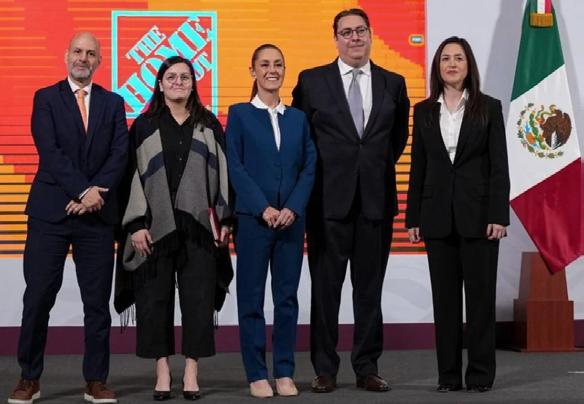
With an investment of 16 million dollars and the creation of 540 direct jobs, Pasubio inaugurated its plant at the PILBA Industrial Park in León, Guanajuato. The Italian company specializes in the production of leather seats for automotive interiors and supplies brands such as BMW, Lamborghini, Alfa Romeo, Volkswagen, Jaguar, Audi, Maserati, and Porsche.
Continental Tires has begun expanding its plant in San Luis Potosí with the construction of a new 2,400-square-meter building. This investment is driven by the growing demand in the automotive sector and reinforces San Luis Potosí’s position as a key industrial hub in Mexico.
SOURCE: MEXICO INDUSTRY
• BILL TO AMEND LABOR AND SOCIAL SECURITY LAWS ON MATERNITY AND PATERNITY LEAVE
Presented by: Sen. Blanca Judith Díaz Delgado (NL - PT)
Objective: Mandates a 15-working-day paid paternity leave for fathers, applicable for childbirth and adoption. Expands maternity leave to 42 days before and 84 days after childbirth, with salary retention, job security, and full labor rights. In cases of children born with disabilities or requiring hospitalization, postnatal leave may extend up to eight weeks. Adoptive mothers will receive an 84-day paid leave. Prohibits pregnant women from engaging in strenuous or hazardous work.
Status: 2025-02-26 - Published in the Parliamentary Gazette
• BILL TO AMEND ARTICLE 123 OF THE MEXICAN CONSTITUTION ON MATERNITY AND PATERNITY LEAVE
Presented by: Sen. Blanca Judith Díaz Delgado (NL - PT)
Objective: Expands labor protections for pregnant women, prohibiting them from performing strenuous or hazardous work and granting a mandatory maternity leave of 42 days before childbirth and 84 days after, with full salary, job security, and retained labor rights. Additionally, establishes a 15-working-day paid paternity leave for fathers, applicable both for childbirth and adoption.
Status: 2025-02-26 - Published in the Parliamentary Gazette
• BILL UNDER DISCUSSION TO ISSUE NEW ENERGY SECTOR LAWS AND REFORM EXISTING LEGISLATION
Presented by: Joint Committees on Energy and Legislative Studies
Objective: Issue new laws for state-owned enterprises (CFE and PEMEX), defining them as public entities with a special regime for subsidiaries, austerity, public procurement, budgeting, debt, and sustainability. The bill strengthens state control over the energy sector, establishes the State’s 54% minimum share in electricity generation, prioritizes PEMEX in oil exploration, reduces its tax burden, and fosters private participation under state oversight.
Status: 2025-02-26 - Published in the Parliamentary Gazette
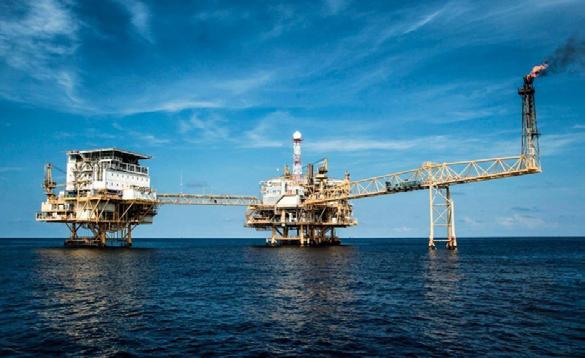

• BILL ON NON-REELECTION AND ELECTORAL NEPOTISM IN THE MEXICAN CONSTITUTION
Presented by: Senate of the Republic
Objective: Prohibits individuals from running for certain public offices if they have or had, within the three years prior to an election, a marital, domestic partnership, or blood/civil relationship (up to the fourth collateral and second affinity degree) with the current officeholder. Establishes a ban on immediate reelection for federal deputies and senators.
Status: 2025-02-26 - Published in the Parliamentary Gazette.
• BILL TO REFORM THE CONSTITUTION ON NATIONAL SOVEREIGNTY AND SECURITY
Presented by: Joint Committees on Justice, Legislative Studies, and Constitutional Affairs
Objective: Adds terrorism to the list of crimes warranting mandatory pretrial detention. Establishes the strictest penalties and mandatory pretrial detention for nationals or foreigners involved in the illegal manufacture, distribution, sale, transport, or smuggling of weapons into Mexico. Strengthens constitutional provisions against foreign intervention in Mexico’s sovereignty, explicitly rejecting coups, election interference, and territorial violations. Requires Congress and state legislatures to align their laws within 180 days.
Status: 2025-02-26 - Approved, sent to the Chamber of Deputies
• BILL TO AMEND AND ADD VARIOUS ARTICLES TO THE FEDERAL LAW ON THE PROTECTION OF PERSONAL DATA HELD BY PRIVATE PARTIES
Presented by: Sen. José Clemente Castañeda Hoeflich (LNal - MC) (View actor profile)
Objective: Amend the Federal Law on the Protection of Personal Data Held by Private Parties to exclude credit information companies, introduce new definitions, strengthen consent requirements, establish security measures, regulate automated profiling, and update penalties in line with the Unit of Measurement and Update (UMA).
Status: 2025-02-25 - Published in the Parliamentary Gazette
NEARSHORING DONE RIGHT:
ADAPTING CONSTRUCTION PROJECTS FOR MEXICO
Successfully nearshoring industrial projects to Mexico requires “tropicalization”—adapting construction to the country’s unique environmental, regulatory, and cultural conditions.
KEY CONSIDERATIONS:
• Regulatory Compliance: Mexico has distinct construction laws, requiring adherence to agencies like SEMARNAT (environment) and STPS (labor) to avoid delays or penalties.
• Climate Adaptation: Materials and designs must suit Mexico’s diverse climates, from corrosion-resistant materials for humid regions to earthquake-resistant structures in seismic zones.
• Cultural and Workforce Alignment: Understanding local labor laws and work culture improves efficiency and collaboration.
• Tropicalization ensures cost-effective, compliant, and efficient project execution.
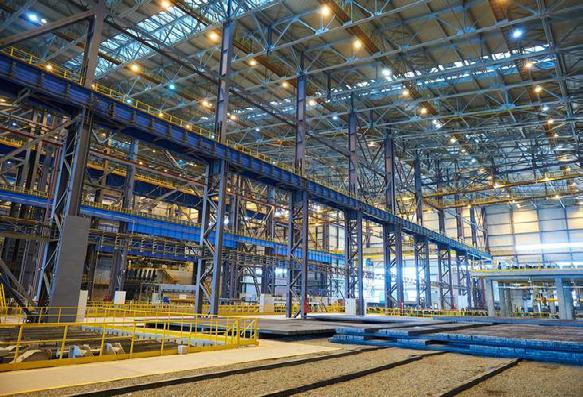

Mexico-China trade has surged to $110 billion, with Chinese investment expanding in automotive, electronics, and renewable energy. While Mexico serves as a strategic gateway to North America, challenges include regulatory hurdles, USMCA compliance, and trade tensions.
KEY INSIGHTS:
• Automotive & Electronics: China dominates EVs and battery production, while Mexico specializes in assembly and exports.
• Regulatory Landscape: No free trade agreement exists, but sector-specific deals and forums facilitate cooperation.
• Success Strategies for Investors: Hiring local talent, adapting business models, and fostering strong communication are crucial.
• To explore how Chinese firms can navigate Mexico’s business landscape, read the full article on our blog.
DOWNLOAD THE FREE E-BOOK FROM PRODENSA.COM/INSIGHTS/E-BOOKS.